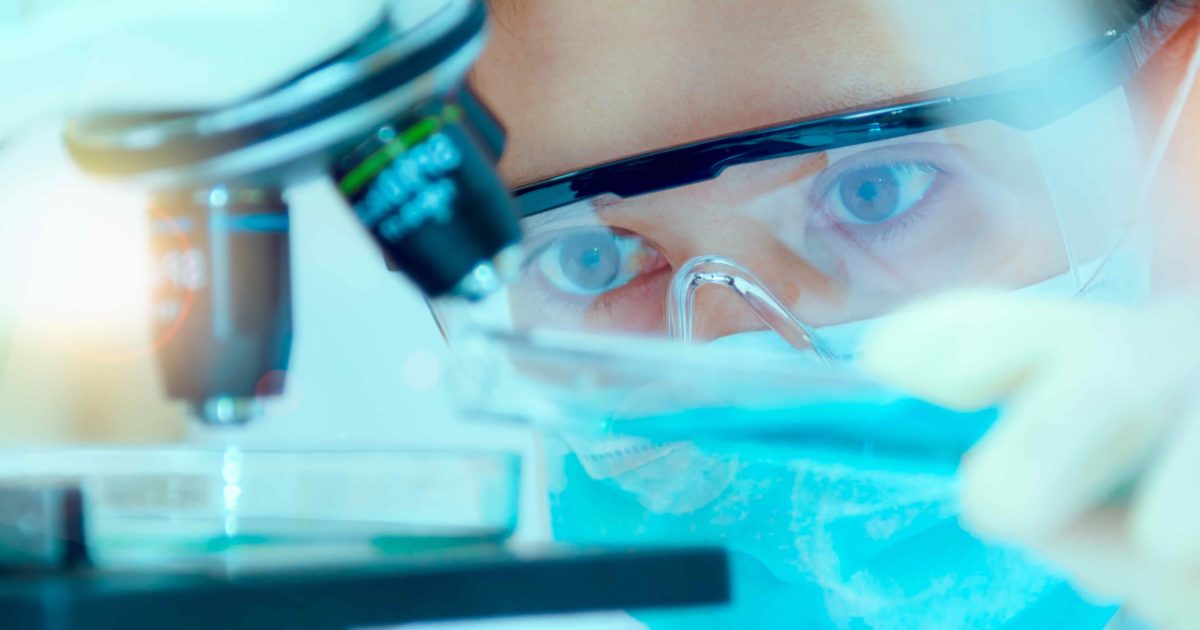It’s at the center of some of the most groundbreaking work to advance human ingenuity in the region — and save lives. And, economically, it’s been home to some of the biggest news about M&A activity, venture capital and job growth.
When it comes to growing industries, the life sciences sector is among the most impactful in the area. Spanning hospital research labs and manufacturing centers where production takes place, harnessing living cells to create new treatments and other biotech, biomedical and pharma work is happening in a footprint that knits together Baltimore, the Maryland suburbs, D.C. and Northern Virginia.
It’s an area that is home to key assets. That includes federal government institutions where research needs are identified such as the Bethesda-based National Institutes of Health, the White Oak-based U.S. Food and Drug Administration and the Gaithersburg-based National Institute of Standards and Technology (NIST), while Frederick-based Fort Detrick is home to a base of biomedical work.
Funding from those institutions flows to universities such as Johns Hopkins University and the University of Maryland, where experts and faculty advance research, establish patents and nurture startups, and hospital systems offer places to gain new insight in the clinic. And at a collection of publicly traded companies born inside the state and big firms that moved here like GSK and AstraZeneca, work goes on to turn innovations hatched at research labs into products that can be made available widely to the public.
“The biohealth industry is one of the top industrial clusters and very important to the Maryland economy,” said Richard A. Bendis, president and CEO of Rockville-based BioHealth Innovation Inc.
The collective activity has already identified a name: the BioHealth Capital Region. And there’s an ambitious goal: to be one of the top three hubs in the nation for biohealth by 2023. (For context, it was #4 last year, according to a ranking released by GEN.)
As the Maryland life sciences industry matures and moves further into clinical development and commercialization, the demand for manufacturing is growing.
But even in the shorter term, there are signs of a new wave of activity that’s having an impact everywhere in one metric that matters locally on the ground: job growth. Specifically, that’s playing out as companies seek the facilities to make products in the state, and the people who can run the operation.
“As the Maryland life sciences industry matures and moves further into clinical development and commercialization, the demand for manufacturing is growing,” said Marty Rosendale, CEO of the Maryland Tech Council.
One of the largest exits of the decade arrived heralded from the sector in April 2019, when Catalent acquired Baltimore-based Paragon Bioservices. The $1.2 billion deal came just days after Paragon opened a new manufacturing center near BWI and made big plans to grow hundreds of jobs locally, and the newly branded Paragon Gene Therapy has continued to hire there and at other facilities like its University of Maryland BioPark HQ.
The same month, Gilead’s Kite Pharma announced plans of its own to create jobs in the region with a forthcoming biologics manufacturing facility in Frederick County.
Longtime companies in the area have also opened their own manufacturing facilities. Gaithersburg-based Emergent Biosolutions has a pair of plants in Baltimore where it makes vaccines and recently expanded, while Precigen (formerly Intextron) opened its own gene and cell therapy-focused space in Germantown last year.
Frederick-based Rooster Bio and BioFactura each made plans to ramp up production with second rounds of funding.
At the same time, Rosendale said, “the next generation of life science companies are now beginning to move out of the incubators and into clinical development.” Viela Bio spun out of longtime regional stalwart MedImmune (owned by AstraZeneca) and made a splash with a debut on the public market in 2019.
And there are signs that it makes sense to plant seeds for future growth in facilities like the two-year-old Johns Hopkins’ Fast Forward 1812 in East Baltimore and LifeBridge Health Bioincubator at Sinai Hospital in North Baltimore, as well as plans for a new BioPark building along MLK Boulevard in Southwest Baltimore and the forthcoming JLABS space from Johnson & Johnson Innovation and the Children’s National Health System in D.C.
Life sciences is often listed alongside cybersecurity as a growing industry in the state, and they face similar situations when it comes to workforce needs.
The wave of growth has brought a job dynamic that has folks looking to fill roles, as well as orders.
“Unemployment in the sector is at an all-time low, while the demand for skilled workforce in the sector continues to grow,” Rosendale said.
Life sciences is often listed alongside cybersecurity as a growing industry in the state, and they face similar situations when it comes to workforce needs.
“With more and more companies advancing their pipelines and seeing success, there is demand across the life science continuum for talent,” said Chris Frew, CEO of BioBuzz Media and Workforce Genetics. “Especially in the later stage clinical and commercialization fields. Biomanufacturing is in great demand and there are lots of jobs, process engineers are also in demand and hard to find.”
The state draws bonafides in the industry from a large cluster of Ph.D.s. And, to be sure, there’s room for highly educated experts to have a role in shaping a company. Bendis said tighter alignment between industry and academia to shape curricula and more education on what jobs are available for postdocs who want to stay in the region can help.
And when it comes to the demands of processing and manufacturing, educated folks are needed at many levels.
“The running joke with my colleagues is if you can tell the difference between a eukaryote and prokaryote, you’re hired,” said Ben Woodard, who leads an effort to train students at the Biotechnology Research and Education Program at the University of Maryland in College Park. “There are more jobs than people … and the ultimate goal is to help healthcare.”
Among the programs offering a pathway is Baltimore City Community College’s Biotech & Lab Animal Science Certificate program. The program offers training in essential lab skills and work experience to nearly 80 students as they work toward a job or an associate’s degree. Through a dual enrollment program with Edmondson-Westside High School, it is also training high school students.
Dr. Amrita Madabushi, an associate professor of biotechnology at BCCC who coordinates the program, said it is connected with over 40 labs in the city, including labs at Johns Hopkins and University of Maryland, as well as biotech companies.
In these labs, students seek out jobs in biomanufacturing, quality control related-positions, or as lab animal or research technicians after they complete the certificate or associate’s degree. One popular pathway from the program is to become a medical lab scientist. Once complete, the students can transfer to complete their bachelor’s degree at University of Maryland’s Medical Laboratory Science track.
Looking specifically at Baltimore, Madabushi sees lots of promise for biotech to become a major industry, with the big companies and influential universities located in the city. The BCCC program shows a path for folks who already live here to find a way into the industry.
“Baltimore has all the essential pieces of the puzzle, which, when put together in the right way, could make a big impact in the BioHealth Capital region,” she said.
Join the conversation!
Find news, events, jobs and people who share your interests on Technical.ly's open community Slack

DC daily roundup: Esports at Maryland rec center; High schoolers' brain algorithm; Power data centers with coal?

DC daily roundup: Tyto Athene's cross-DMV deal; Spirit owner sells to Accenture; meet 2GI's new cohort

DC daily roundup: $10M to streamline govt. contracting; life sciences might dethrone software; Acadia's new $50M


